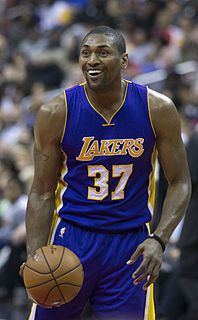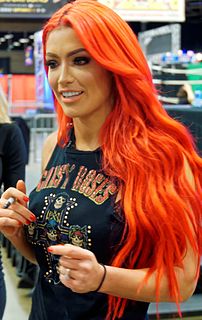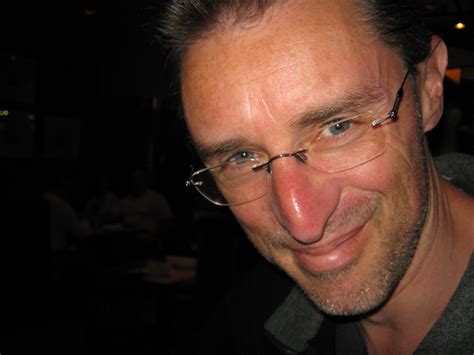A Quote by Craig Ferguson
The term Big Brother is from George Orwell's book 1984 - where everyone's watched over by a network of cameras called Big Brother. I've never understood why Orwell chose that phrase for somebody watching you all the time. Isn't that more like Creepy Uncle?
Related Quotes
Who are these evil ones? In 1984, the evil one was called Goldstein. Orwell was writing a grim parody. But these people running the United States mean what they say. If I were a teacher, I would recommend that all my students very hurriedly read most of Orwell's books, especially 1984 and Animal Farm, because then they'd begin to understand the world we live in.
If Big Brother (of Orwell's 1984) comes to America, he will not be a fearsome, foreboding figure with a heart-chilling, omnipresent glare as in 1984. He will come with a smile on his face, a quip on his lips, a wave to the crowd, and a press that (a) dutifully reports the suppressive measures he is taking to save the nation from internal chaos and foreign threat; and (b) gingerly questions whether he will be able to succeed.
This bill would renounce the safe, proper, and acceptable role for Government as a referee of disputes between the governed. It would interpose the Government as a biased protagonist, armed with the awesome authority of the Federal Government, in addition to rulemaking and umpire powers. The broad grants of power to the Attorney General to initiate and intervene in civil actions would go far toward transforming him into George Orwell's 'Big Brother' of '1984,' in the year 1964.
Think about George Orwell's three-minute hate from the novel '1984' and how that left everyone sort of exhausted and able to live their boring humdrum lives. If our lives are going to continue being unfulfilled and boring, perhaps we do need some sort of short-term violent chaos incorporated into them, to make them more palatable.
I used to wonder: Is Huxley right or is Orwell right? It turns out they're both right. First you get the new world state and endless diversions as you are disempowered. And then, as we are watching, credit dries up, and the cheap manufactured goods of the consumer society are no longer cheap. Then you get the iron fist of Oceania, of Orwell's 1984.
George Orwell's '1984' frequently tops surveys of our greatest books: it's not a celebration of poetic language. It's decidedly anti-literary, a masterpiece of personal and political narrative sequence. And its subject matter is crucial, because what '1984' shows is that language can be a dirty trick.
































